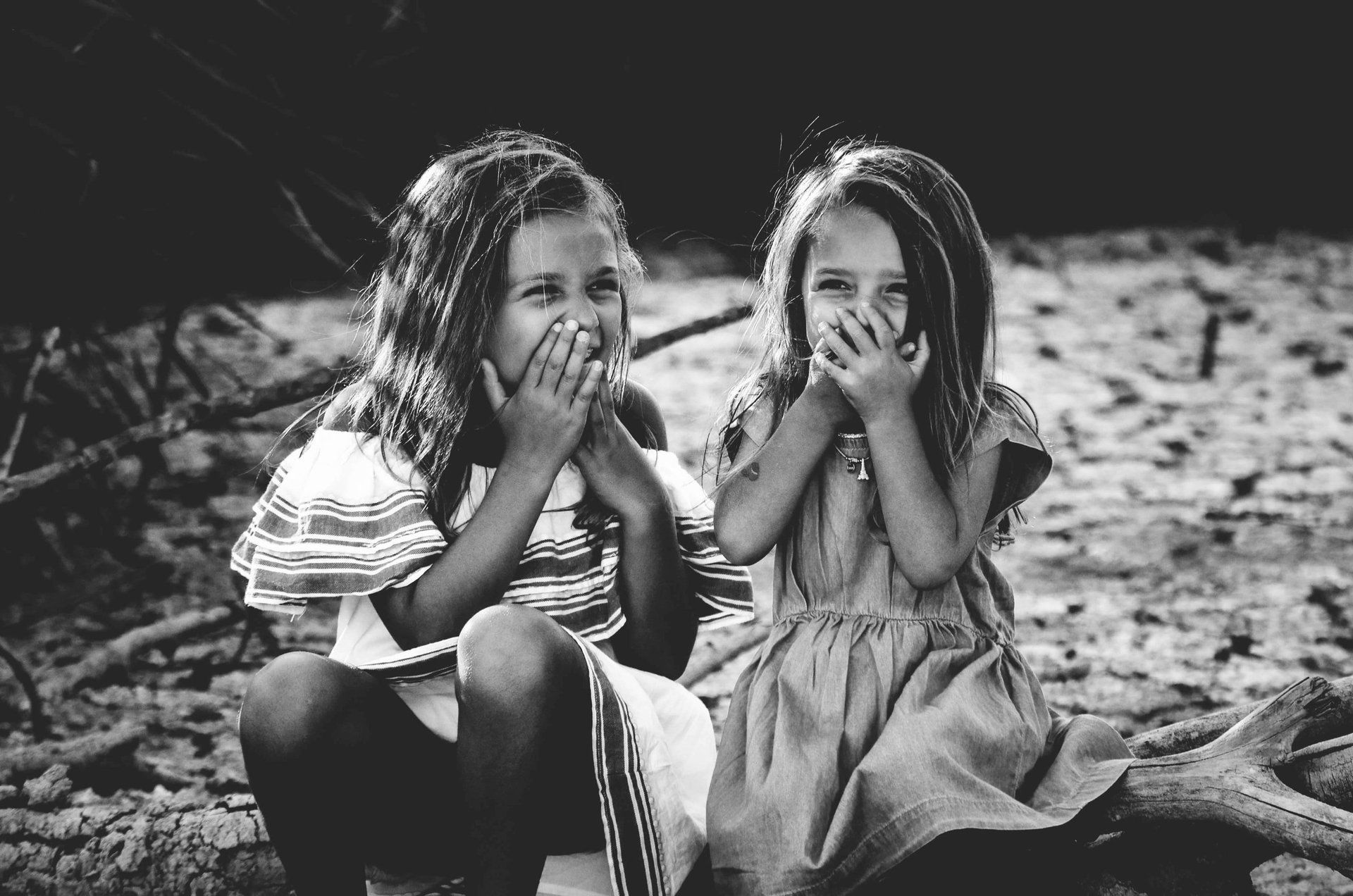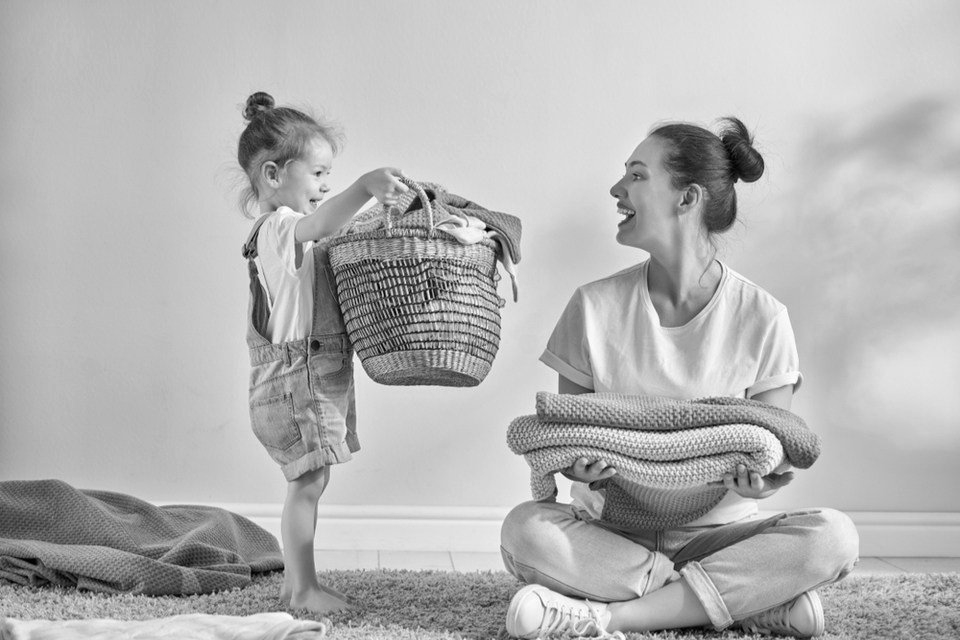13 Habits That Raise Well-Adjusted Kids
With so much conflicting parenting advice, you may wonder how to raise a well-adjusted kid? Before you hide under the pillow, check out these 13 habits any parent can do.
I keep seeing posts about “entitled kids” making the rounds lately. In fact, you don’t have to look hard before you see things written about how “lazy” and “narcissistic” and “downright terrible” kids are these days.
As a parent of younger kids, you read these articles and feel paralyzed by overwhelm and fear and mixed messages. What exactly is the right thing to do? Where am I going wrong? Should I give up and start a savings account for my kids’ future therapy sessions?
The part that scares me the most is we are so overwhelmed by the judgement in modern parenting that it feels safer (and by far easier) to do nothing, to turn on the tv and hide in technology Never, Never Land.
You should know something.
Change starts with one parent and one child at a time. You have a beautiful window of opportunity to build the foundation that your child desperately needs but also craves.
The foundation for things like generosity, responsibility, appreciation, warmth, kindness, helpfulness and hard-work ethic all starts during the early years.
Here’s the hard part.
It starts with us — the parents. Kids cannot even think at the maturity level needed to break a behavior cycle, let alone do anything about it. So, as the parents, it has to start with us. The foundation for well-adjusted kids always starts with us.
Here are 13 simple ways that help raise well-adjusted kids. Let’s get back to basics.
Boundaries
No brainer, right? But…It’s hard to set boundaries for kids and stick to them. This is especially true when kids push back, scream endlessly or threaten things like, “I hate you.” Remember that when kids act this way, they are meeting their own needs in the only way they know how. Depending on the boundary, it can take a long time before a child lovingly accepts a parent’s boundary.
When kids start to push back or scream less, this is actually your child moving towards acceptance of the boundary. If your boundary is like a wall (and not a door that confusingly swings open from time to time) your child will bounce and eventually work to meet his or her need in an alternative way.
The world is a very chaotic place. Boundaries help your child, not only feel grounded, but thrive. Check yourself and think about what your real boundaries are. Then remember, they’re brick walls, not doors.
Routines
There’s so much of childhood that is new and challenging for kids. Learning self-control and empathy. Learning how to be a friend and interact with others. These are all very BIG things for kids. Using something as simple as these printable routine cards can help kids feel grounded and relaxed. In fact, knowing what to expect at mealtimes, mornings and bedtimes can bring a sense of relief to even the most carefree child.
Have a strong-willed child? Even better. Routines allow kids to feel a sense of control, something that is very important to a strong-willed child.
Early bedtimes
Sleep is the building block for healthy brain development. It helps us process the days events and learn from it. Kids brains are constantly developing and creating new neural connections. They absolutely must get sleep to nurture these connections.
Between kid activities, school and always squeezing in tech time, kids are going to bed later and having a difficult time settling before sleep. One of the most basic things you can do for your kids behavior, health and well-being is to help them get the sleep they need.
Empathy
What do kids really need to be happy and successful? The answer surprises most: Empathy. It’s the trait that allows us to “walk in another person’s shoes.” New research shows that empathy plays a major role in predicting kids’ happiness and success.
Though kids are hardwired to care, they aren’t born empathetic, just like they aren’t born knowing how to order a latte at Starbucks (wink). It’s a learned behavior.
“Empathy promotes kindness, prosocial behaviors, and moral courage, and it is an effective antidote to bullying, aggression, prejudice and racism. It’s why Forbes urges companies to adopt empathy and perspective-taking principles, the Harvard Business Review named it as one of the ‘essential ingredients for leadership success and excellent performance.’” – Dr. Michele Borba, psychologist and parenting expert.
Hugs
There is a saying by Virginia Satir, a respected family therapist, “We need four hugs a day for survival. We need eight hugs a day for maintenance. We need twelve hugs a day for growth.”
“Hugging triggers the release of oxytocin, also known as the love hormone. This feel-good hormone has many important effects on our bodies. One of them is growth stimulation.
Studies show that hugging can instantly boost the level of oxytocin. When oxytocin is increased, several growth hormones, such as insulin-like growth factor-I (IGF-1) and nerve growth factor (NGF), are increased as well. The nurturing touch of a hug can enhance a child’s growth.” – Pamela Li, creator of Parenting for Brain
Playful parents
Children don’t say, ‘I had a hard day […] Can we talk?’ They say, ‘Will you play with me?’” – Lawrence Cohen.
We don’t reserve much room in our lives for fun and games anymore. Our days are filled with stress, obligations and hard work, and without realizing it, we are more disconnected from our kids than ever. Play is the work of the child and to connect with our kids, we must play with our kids.
Taking the time to put down our phones and realize that our kids need. us. to. play. It sounds silly, but all the mindless funny cat videos and random Tasty recipes will still be there years later; our children won’t.
Outdoor time
“Movement through active free play, especially outside, improves everything from creativity to academic success to emotional stability. Kids who don’t get to do this can have so many issues, from problems with emotional regulation—for example, they cry at the drop of a hat—to trouble holding a pencil, to touching other kids using too much force.” – Meryl Davids Landau, author of Enlightened Parenting
Chores
“Even though it is more difficult at the time to persist in having children do chores, kids benefit from the experience.
Research indicates that those children who do have a set of chores have higher self-esteem, are more responsible, and are better able to deal with frustration and delay gratification, all of which contribute to greater success in school.
Furthermore, research by Marty Rossman shows that involving children in household tasks at an early age can have a positive impact later in life. In fact, says Rossman, ‘the best predictor of young adults’ success in their mid-20’s was that they participated in household tasks when they were three or four.’” Deb Cohen, Center for Parenting Education
More screen-time limits
“In order for the brain’s neural networks to develop normally during the critical period, a child needs specific stimuli from the outside environment. These are rules that have evolved over centuries of human evolution, but—not surprisingly—these essential stimuli are not found on today’s tablet screens. When a young child spends too much time in front of a screen and not enough getting required stimuli from the real world, her development becomes stunted.” – Dr. Liraz Margalit, Behind Online Behavior
Experiences, not things
“Children require less things and far more meaningful experiences. When they grow up, it’s not the stuff in their life they will remember, it’s that time you tried to catch tadpoles at the lake, or that sand castle you both built that the wave knocked over at the beach […] The best life experiences cost little to nothing, like a picnic in the park, blowing bubbles in the backyard, making chalk drawings on the sidewalk, or tossing a football around, but they all have one thing in common: you do them together. What kids really want in life is quality time spent with their parents.” – Sally White, parenting writer
Slow moving days
“I encourage parents to take some time to just watch their children, whether they are playing, doing homework, or eating a snack. Take a moment to drink them in. Remember and remind yourself how remarkable your children are. That pause alone, even if momentary, can drive a shift in the pace.” John Duffy, clinical psychologist
Books read to them
“One of the most important things parents can do, beyond keeping kids healthy and safe, is to read with them. That means starting when they are newborns and not even able to talk, and continuing well beyond the years that they can read by themselves. Study after study shows that early reading with children helps them learn to speak, interact, bond with parents and read early themselves, and reading with kids who already know how to read helps them feel close to caretakers, understand the world around them and be empathetic citizens of the world.” Amy Joyce, parenting writer
Music
“Science has shown that when children learn to play music, their brains begin to hear and process sounds that they couldn’t otherwise hear. This helps them develop ‘neurophysiological distinction’ between certain sounds that can aid in literacy, which can translate into improved academic results for kids.” ( source
)
Original post - The Military Wife & Mom
Share Post
Complete the following form if you require more info about EQ4kids or want to enroll your child at your nearest Franchise.
Blog Enquiry











